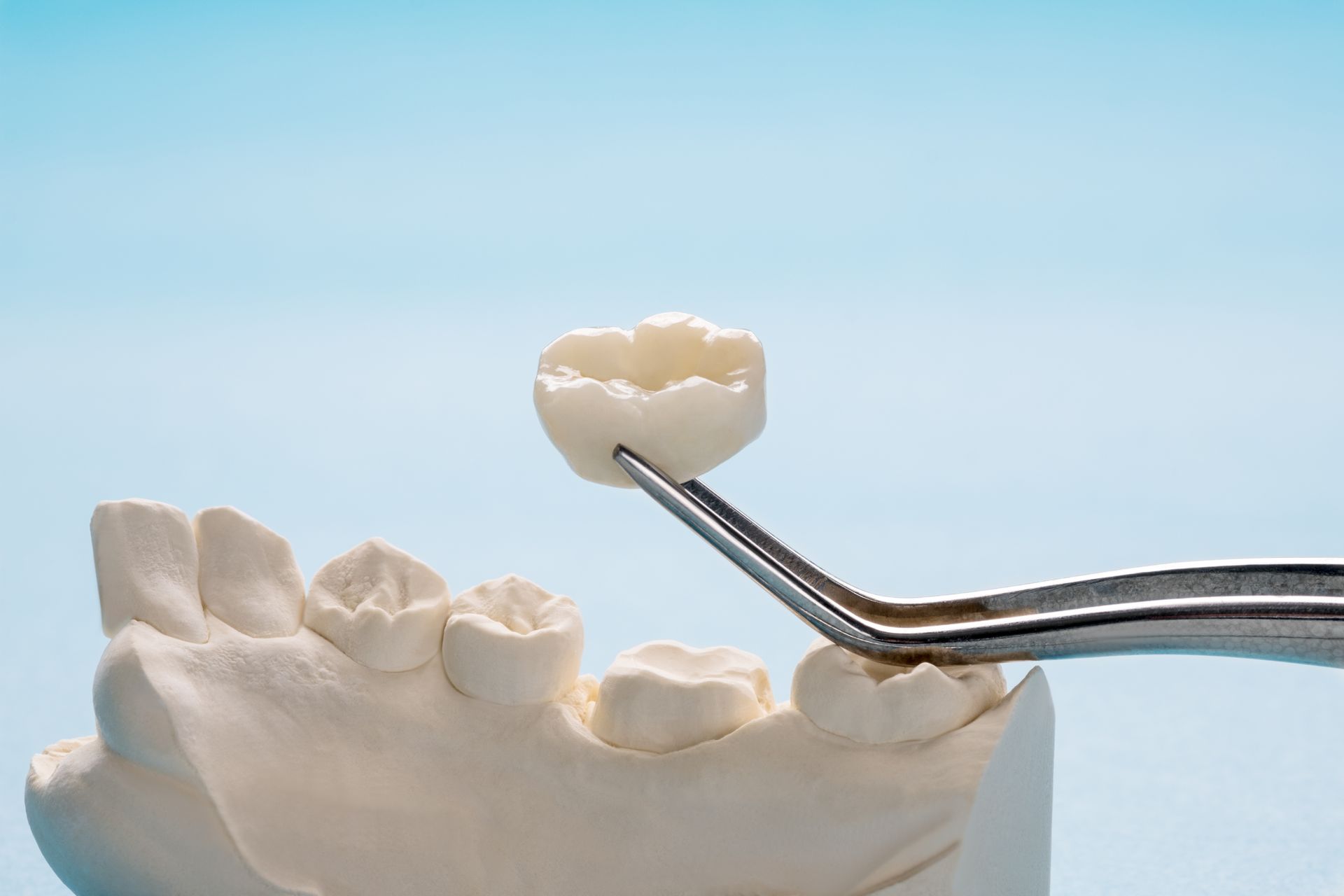What are Dental Crowns?
Dental crowns are highly customized dental prostheses that aim to restore the form, function and aesthetics of a tooth, providing a healthy and natural smile.
Dental crowns can be cemented onto a damaged or weakened tooth, restoring its form and function, or in the case of missing teeth, they can be screwed onto an implant, reproducing the same characteristics (function and aesthetics) as the lost natural teeth. The material most commonly used for dental crowns is, in the vast majority of cases, all-ceramic and, in very exceptional cases, metal and ceramic. Each material has its own advantages and is chosen according to the clinical situation and the patient's needs and preferences.
Dental crowns offer an effective and long-lasting solution for restoring damaged or missing teeth and improving the aesthetics of the smile.
Our Clinical Team is here to help you!
When should dental crowns be fitted?
Extensive Caries
Dental crowns can protect and restore teeth damaged by extensive decay, restoring their function and aesthetics.
Dental fractures
In cases of dental fractures, crowns can be used to cover and protect the tooth, preventing future complications.
Root Canal Treatments
After endodontic treatment, commonly known as root canalization, the placement of a dental crown can be recommended to protect the weakened tooth and restore its form and function.
Replacing Missing Teeth
Regardless of whether a missing tooth is visible or not, it should always be replaced. The implant will act as a support for a dental crown that will perfectly replace the natural tooth.
Benefits of Dental Crowns
Restoring Masticatory Function
When a tooth is damaged by extensive decay, fractures or other problems, its ability to chew food properly can be compromised. Dental crowns rebuild the structure of the tooth, restoring normal chewing ability and allowing you to enjoy a varied and healthy diet.
Protection of Damaged Tooth
As well as restoring chewing function, dental crowns also protect damaged teeth from further damage. By completely enveloping the tooth, the crown acts as a physical barrier, preventing bacteria from entering and preventing the development of cavities and other complications.
Durability and resistance
Dental crowns are made from durable and resistant materials such as ceramic or metal-ceramic, guaranteeing a long-term solution. With proper care, crowns withstand the daily forces exerted during chewing and remain intact for many years.
Improved aesthetics and self-confidence
As well as restoring tooth function, dental crowns also improve the aesthetics of the smile. The materials used in their production can be customized to perfectly match the color, shape and texture of the remaining natural teeth, providing an impeccable aesthetic result and a naturally beautiful smile. Better aesthetics are associated with increased self-confidence and quality of life.
Difference Between Crowns and Veneers
Both dental crowns and dental veneers are effective treatments for improving the aesthetics of the smile and restoring the function and health of the teeth. The choice between these two treatments depends on the patient's specific needs, including the state of the dentition, the aim of the treatment and personal preferences. Consult a dentist to assess your needs and help you decide which option is best for you.
Dental Crowns
Total Coverage:
Dental crowns are prostheses that completely enclose a damaged or weakened tooth.
Recommendations:
Dental crowns are recommended for teeth that have been severely damaged or weakened by extensive decay, fractures or root canal treatments. They can also be used to replace missing teeth with dental implants or as part of a fixed bridge on implants.
Benefits:
Dental crowns have a rehabilitative function, protecting damaged teeth and restoring their chewing function. They can also improve the aesthetics of the smile.
Dental Veneers
Partial Coverage:
Veneers are thin sheets of ceramic or composite resin bonded to the front of teeth to improve their appearance. Unlike dental crowns, veneers cover only the visible part of the tooth, preserving most of the natural tooth structure.
Recommendations:
Veneers are used to correct aesthetic imperfections such as stains, chips, gaps between teeth or misaligned teeth. They do, however, require the supporting tooth to be in relatively good condition.
Benefits:
Dental veneers offer a quick and effective aesthetic solution for a variety of dental imperfections, providing immediate and natural results.
Clinical Cases
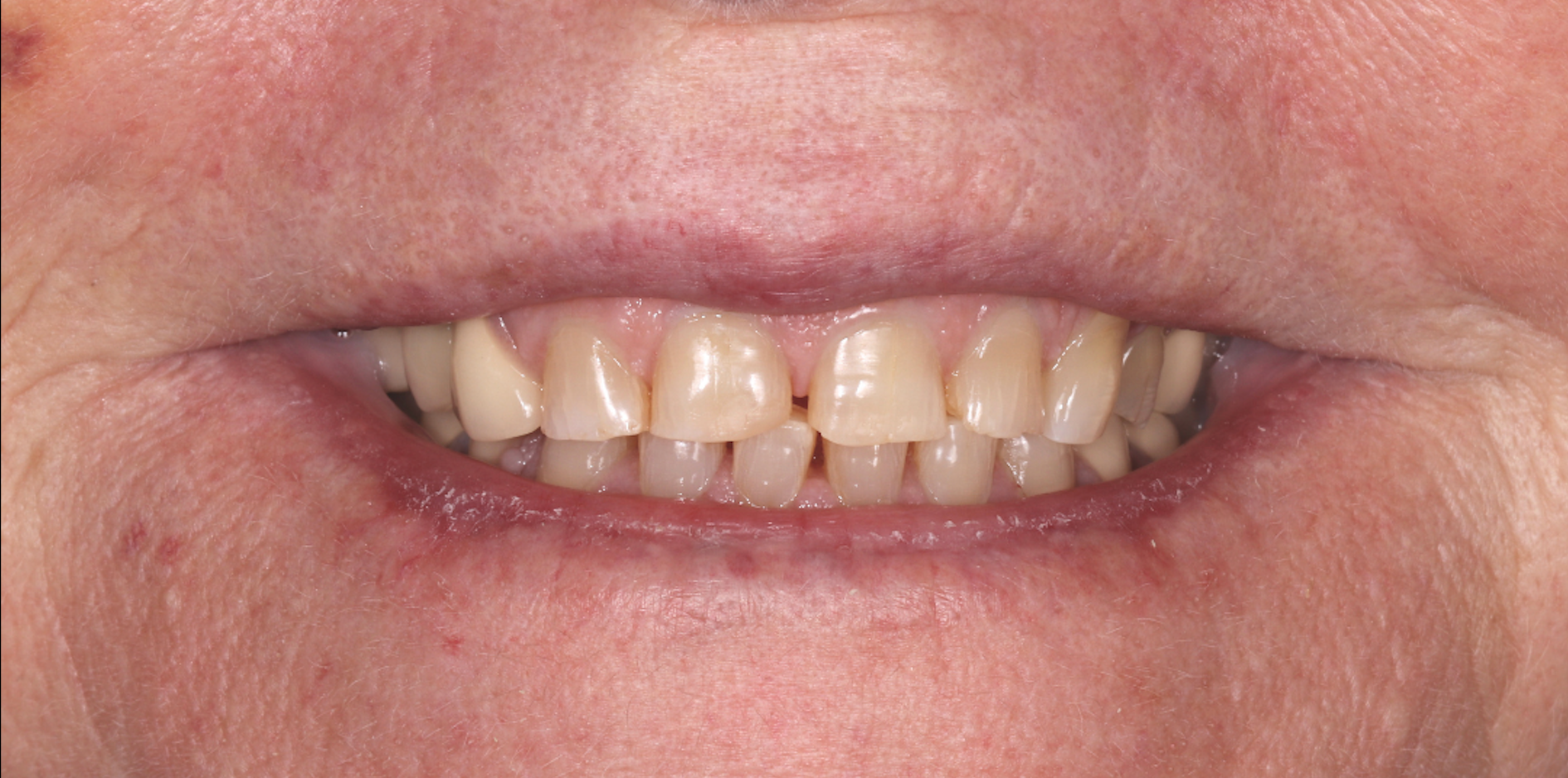
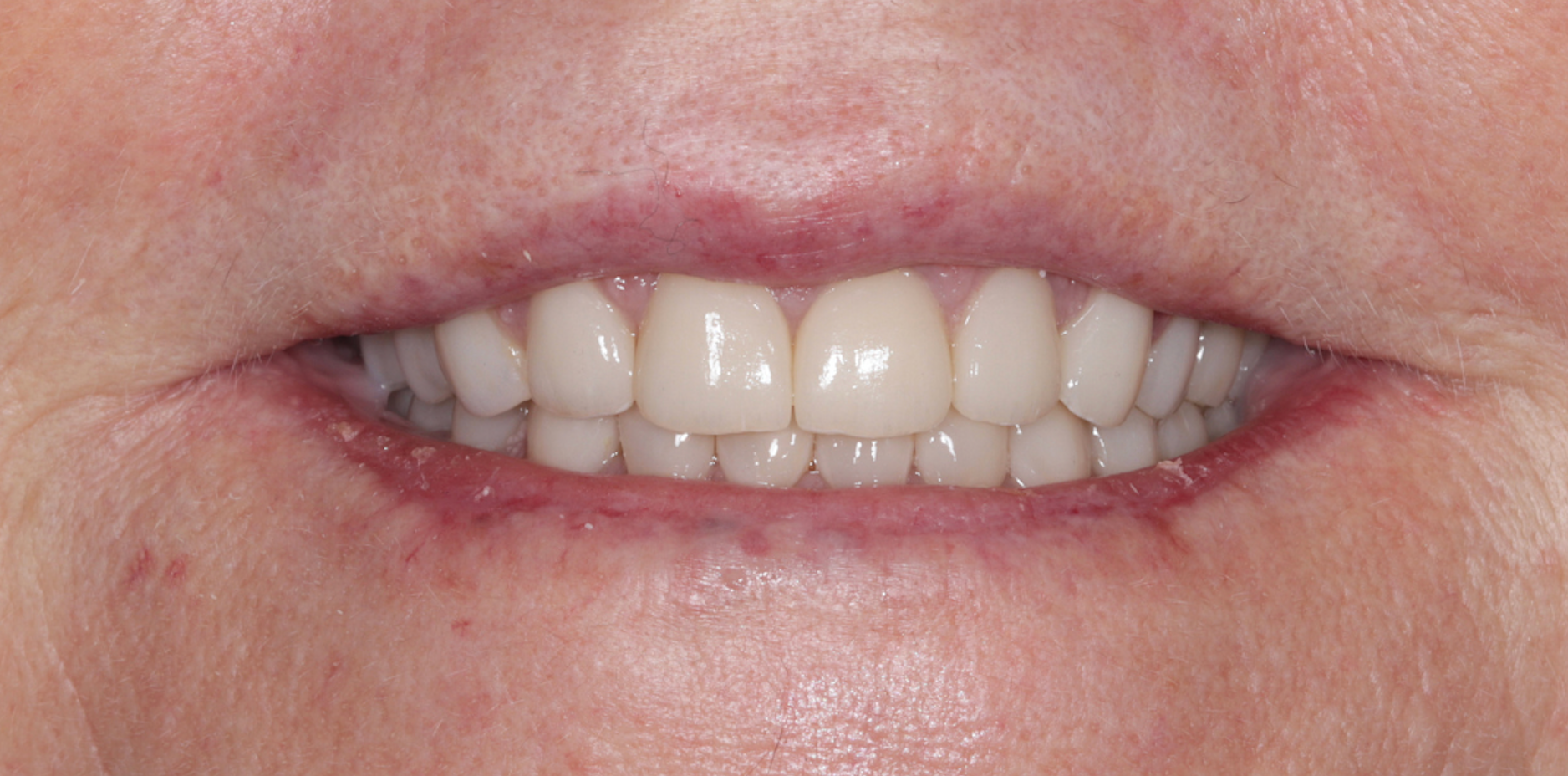
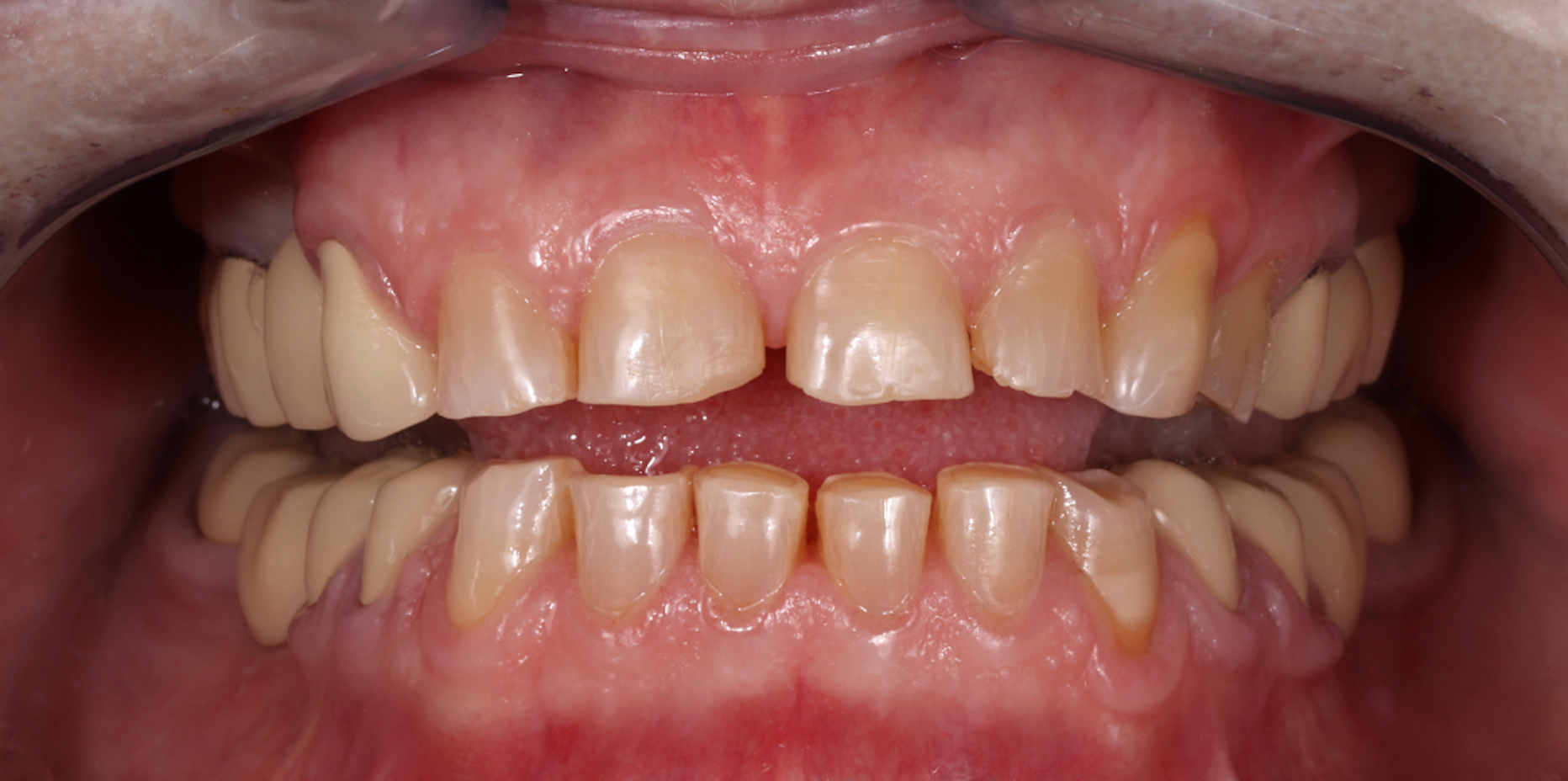
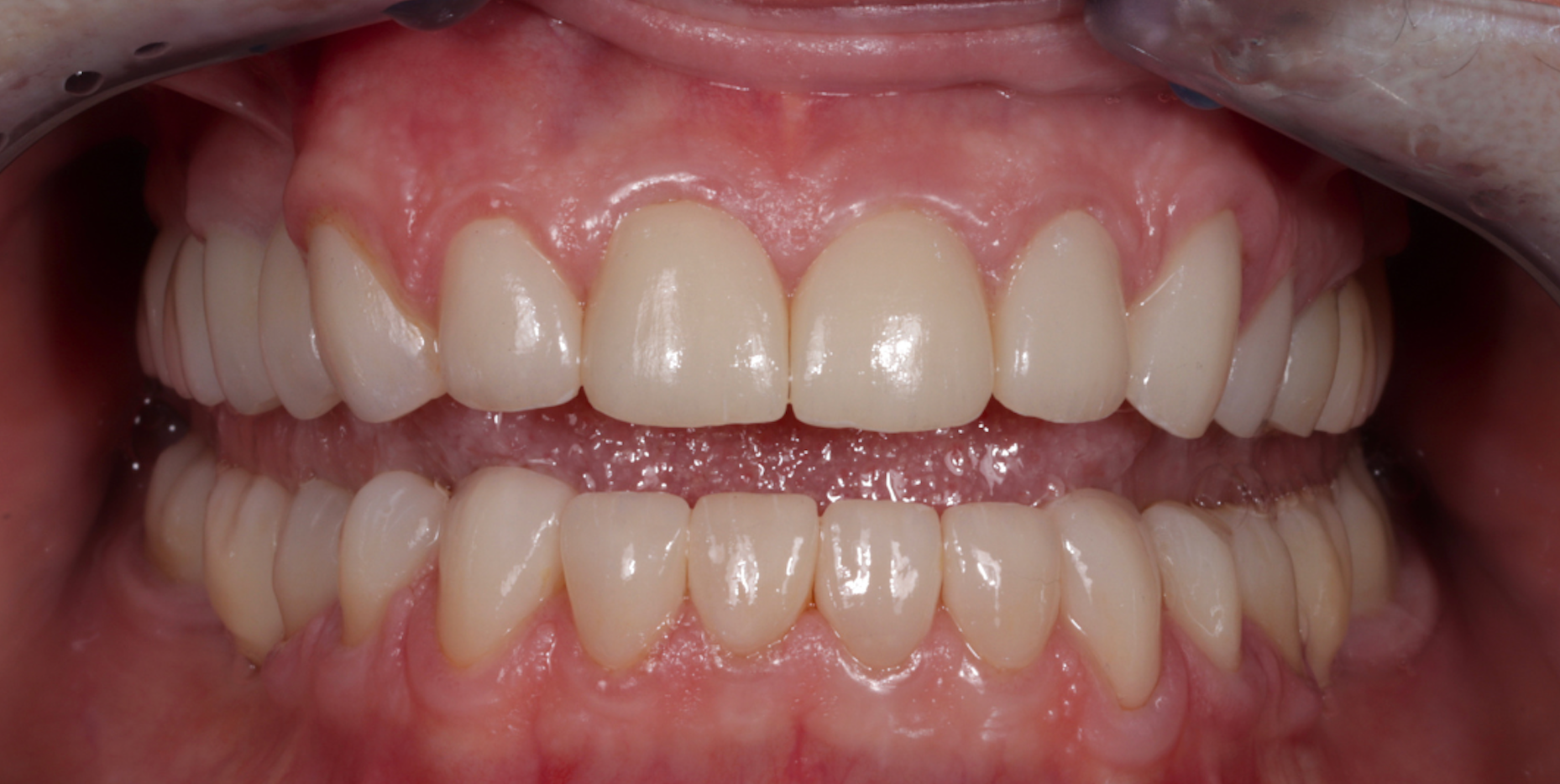
Our Clinical Team is here to help you!
Clinical Team

Carlos Moura Guedes
Prosthodontics
Nº 2704/OMD

Helena Bonifácio
Prosthodontics and Dentistry
Nº 12660/OMD

Carlos Wilson Carvalhais
Prosthodontics and Orofacial Harmonization
Nº 11096/OMD
Carlos Moura Guedes
Prosthodontics
Nº 2704/OMD
Helena Bonifácio
Prosthodontics and Dentistry
Nº 12660/OMD
FAQ's
-
1. How is a dental crown fitted?
The process of placing a dental crown involves several stages, including tooth preparation, molding, crown production and final placement. Depending on the clinical situation, the dentist will prepare the tooth so that it can receive the crown, and then, either analogically or digitally, molds are made that will serve as the basis for producing the crown. The crown will be produced in the most suitable material for each situation and after production it will be cemented onto the tooth.
-
2. Are dental crowns permanent or temporary?
Dental crowns are permanent, designed to last for many years with proper care. However, in the vast majority of cases it is necessary to make a temporary crown in a less durable material while the permanent crown is being produced or, in the case of crowns on implants, while the implant healing process is underway.
-
3. How long does a dental crown last?
Depending on the durability of the material used and the care taken by the patient, dental crowns are very resistant and long-lasting solutions. However, it is essential that the patient maintains good oral hygiene and respects the dentist's instructions to avoid any behavior that could compromise the integrity of the dental crowns.
-
4. What care is needed after a dental crown has been fitted?
Care after having a dental crown fitted includes maintaining effective oral hygiene, brushing your teeth at least twice a day and flossing daily. It is recommended that certain foods, especially hard or sticky ones, are avoided so as not to damage the crown.
Agreements and partnerships




Our Clinical Team is here to help you!
About Us
Dental Specialities
@ 2023 All rights reserved - Malo Clinic SA | NIF 503411434 | ERS N.º12920



